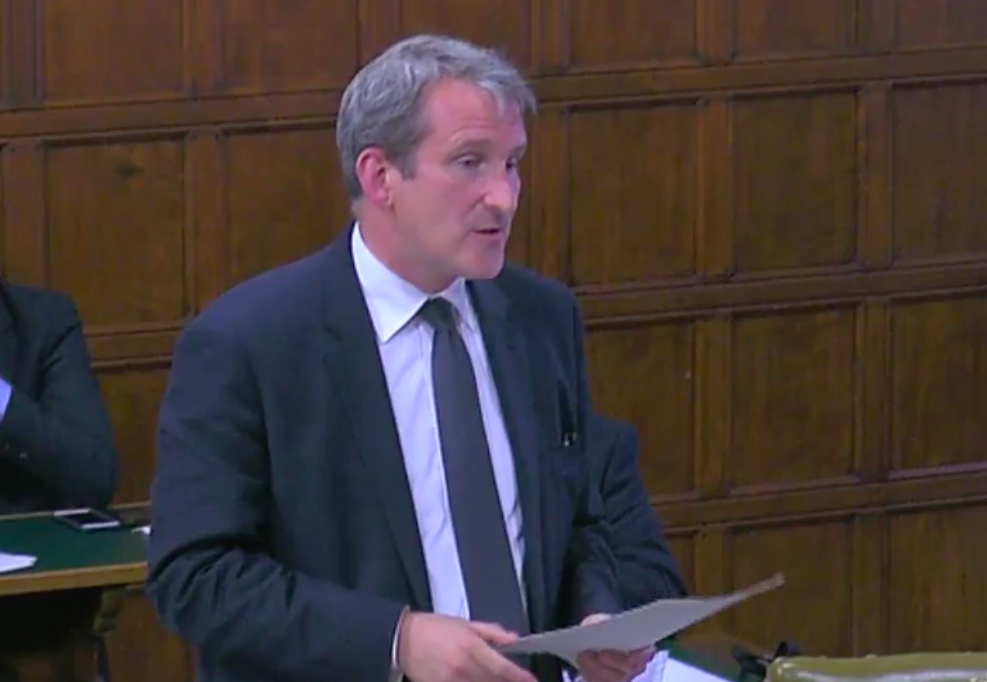Parliamentary inquiry demanded over minister's plans to allow new faith schools to take fewer pupils from different backgrounds
'It is time for a thorough investigation into why the demands of religious groups are prioritised over the rights of children and parents'

Your support helps us to tell the story
From reproductive rights to climate change to Big Tech, The Independent is on the ground when the story is developing. Whether it's investigating the financials of Elon Musk's pro-Trump PAC or producing our latest documentary, 'The A Word', which shines a light on the American women fighting for reproductive rights, we know how important it is to parse out the facts from the messaging.
At such a critical moment in US history, we need reporters on the ground. Your donation allows us to keep sending journalists to speak to both sides of the story.
The Independent is trusted by Americans across the entire political spectrum. And unlike many other quality news outlets, we choose not to lock Americans out of our reporting and analysis with paywalls. We believe quality journalism should be available to everyone, paid for by those who can afford it.
Your support makes all the difference.Plans by the Education Secretary to allow new faith schools to take fewer pupils from different religions has prompted calls for a parliamentary inquiry to look into “damaging” consequences.
Damian Hinds, who was appointed last month, is said to be pushing ahead with plans to scrap a cap on new faith schools - which stops them from selecting more than half of pupils on their religion.
And campaigners are now calling for a parliamentary committee to investigate the proposal to increase religious selection in free schools, as experts say it will increase social segregation.
Evidence showing that the 50 per cent cap, which was introduced in 2010, has boosted ethnic diversity in religious schools has been “disregarded”, Humanists UK claim.
In a new letter to the Commons’ education select committee, they say that the arguments against lifting the cap have been ignored by the Government because of the demands of religious groups.
And they say that research, published by the Department for Education in August last year, found that pupils in ethnically mixed schools expressed more positive attitudes and higher levels of trust towards children from different backgrounds, compared to pupils in segregated schools.
The study came after the Government launched its consultation on lifting the cap in new faith schools in September 2016.
It was understood that former education secretary Justine Greening had blocked proposals. But her successor, Damian Hinds, who attended a Catholic boys’ school, told The Sunday Times he would like the cap to be removed.
The minister’s commitment has been welcomed by the Catholic Education Service who have argued that the cap has prevented them from opening new free schools.
But campaigners, policy advisers and academics are joining the call for a public inquiry. And yesterday, National Secular Society protesters were outside parliament demanding that the 50 per cent cap was kept in place.
Jay Harman, campaigns manager of Humanists UK, told The Independent: “It is time for a thorough investigation into the way in which the demands of the religious lobby can come to be prioritised over the rights of children and parents.”
Reverend Stephen Terry, chair of the Accord Coalition, added: “The Government is proposing to make controversial changes to how faith schools can select their pupils without any proper scrutiny by Parliament.”
Jon Andrews, deputy head of research at the Education Policy Institute (EPI) think tank, added: “Our research has demonstrated that faith schools are often socially selective.
“As they admit more pupils with high prior attainment and fewer pupils from disadvantaged backgrounds, many faith schools are unrepresentative of the local areas they serve.
“So this policy, which aims to increase the number of faith schools, carries the risk of increasing social segregation and harming social mobility”.
Meanwhile, Ruth Wareham, a postdoctoral research fellow who is working on a project into faith schools at the University of Warwick, has called for a parliamentary inquiry.
She said: “If the Government removes the cap, I fear that it is laying the path for a more segregated, less tolerant society.”
Robert Halfon, chairman of the education select committee, told The Independent that a decision on whether a public inquiry would be held in the Commons had still not be made.
But speaking to the Evening Standard last month, the Conservative MP said he thought the cap could be eased as long as there was an opportunity for a “minority of non-faith pupils to go the schools”.
A spokesperson for the Catholic Education Service said: "We welcome the Secretary of State for Education's commitment to parents and their right to have choice in the school system.
"As the second largest provider of education in the country, the Catholic Church looks forward to strengthening its ongoing partnership with the Government, providing high quality schools where there is parental demand for them."
A Department for Education spokesperson said: “The government is committed to offering parents and children a diverse education system with wide variety of high quality providers - and this includes faith schools.
“We will be responding to the Schools that Work for Everyone consultation, including plans for the faith cap, in due course.”
Join our commenting forum
Join thought-provoking conversations, follow other Independent readers and see their replies
Comments